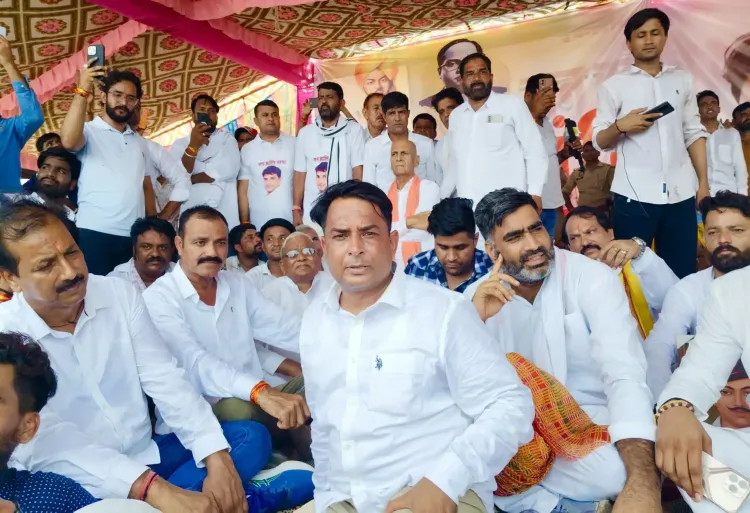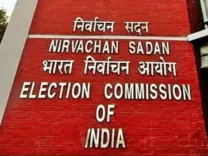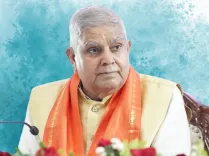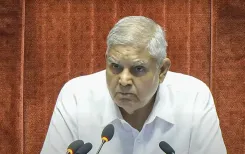What prompted Naresh Meena to launch ‘Jankranti Yatra’ after his release?

Synopsis
Key Takeaways
- Naresh Meena's 'Jankranti Yatra' signifies a protest against corruption.
- The yatra will cover significant distances, involving numerous villages.
- Support from former officials highlights the seriousness of the movement.
- Public unrest may escalate if grievances remain unaddressed.
- The event reflects a broader demand for accountability in governance.
Jaipur, July 21 (NationPress) Following an eight-month imprisonment for assaulting a Sub-Divisional Magistrate during the elections in Deoli-Uniyara (November 2024), political figure Naresh Meena has commenced his 'Jankranti Yatra' from Kamkheda Balaji Dham in Manoharthana, Jhalawar, on Monday.
The yatra, designed to protest against corruption and injustice, will span 150 km and wrap up on July 28 at Trikuta Mata Temple in Kota.
At the launch event, Naresh Meena strongly criticized the government, stating, “Great individuals have sacrificed everything for this nation. What do I possess? At most, they might just close my petrol pump.”
He accused the state of having a pervasive corruption network in every agency and cautioned that if the present circumstances persist, not only the average citizens but also farmers and leaders could lose their lands.
During the event, former minister Rajendra Gudha expressed his support for Meena, denouncing the government’s actions and labeling it as injustice.
“What transpired with Naresh Meena should never befall any youth again,” Gudha remarked.
Commenting on the recent violence in Samaravata village, he noted, “The village is now abandoned. The mob was a response to the abuse faced by women and children. It has conveyed a powerful message.”
Gudha further cautioned the government that public dissatisfaction may escalate if the administration continues to suppress dissenting voices.
Quoting Chanakya, he stated, “When the king turns into a businessman, the public becomes beggars.”
He alleged that all leaders have shifted their focus to business, neglecting public welfare.
The coordinator of the yatra, Sohag Meena, mentioned that approximately 300 supporters are traveling with Naresh Meena. The initial stop was at Harnavada, Baran district, and the march will pass through various villages before concluding in Kota.
The yatra is perceived as a political declaration against what Meena and his followers describe as administrative oppression and systemic corruption.





